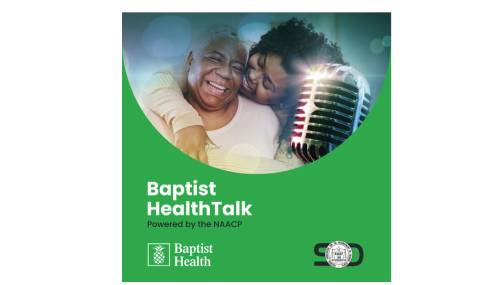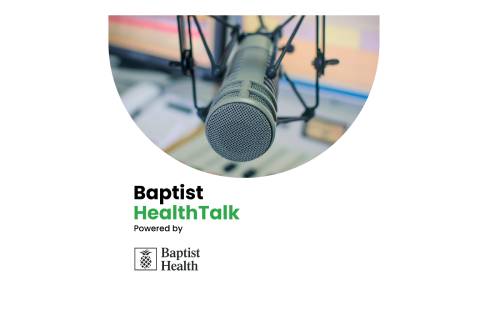
Science
Roundup: U.S. Experts Cannot Find 'Sufficient' Benefits from Vitamin Supplements; Weight-Loss Surgery Linked to Lower Cancer Risk; and More
4 min. read
Written By: John Fernandez
Published: July 1, 2022
Written By: John Fernandez
Published: July 1, 2022
U.S. Task Force: No ‘Sufficient’ Evidence That Vitamin Supplements Prevent Heart Disease or Cancer
For the average healthy adult with no known vitamin deficiency and a healthy diet, there’s no benefit to taking vitamins or supplements, according to a major review of 84 studies supported by the U.S. Preventive Services Task Force.
Referring to the new review, published in the journal JAMA Network, the U.S. task force concluded there is “insufficient” evidence to either recommend or discourage the use of multivitamins or supplements to prevent the two leading causes of death: heart disease and cancer. “Evidence is lacking and the balance of benefits and harms cannot be determined,” the U.S. task force concluded.
However, all individuals need to see their doctor to determine if they have a vitamin deficiency or other condition requiring any supplement.
Experts agree that instead of taking vitamins or supplements, eating a balanced diet high in fruits and vegetables, exercising regularly and maintaining an ideal weight are the best methods to lower one’s risk of cancer or heart disease.
Nonetheless, the review’s authors stated that 52 percent of surveyed U.S. adults reported using at least 1 dietary supplement in the prior 30 days, and 31 percent reported using a multivitamin-mineral supplement. “The most commonly cited reason for using supplements is for overall health and wellness and to fill nutrient gaps in the diet,” the authors said.
The U.S. Preventive Services Task Force is an independent, volunteer panel of national experts in disease prevention and evidence-based medicine.
Weight-Loss Surgery Can Significantly Lower Your Cancer Risk, New Study Concludes
Obese people who lost significant amounts of weight through bariatric surgery may have another significant additional benefit: a much lower risk of developing cancer, according to a major new study published this month in JAMA.
Researchers from the Cleveland Clinic monitored more than 30,000 adults with obesity for about a decade and found that those who underwent weight-loss surgery had a 32 percent lower risk of developing cancer, and a 48 percent lower risk of dying from the disease, compared with obese people who did not undergo the surgery.
The study also found that those who had weight loss surgery lost about 55 pounds more than those who did not have the surgery. Nearly half of all adults in the U.S. will be obese by 2030, according to recent projections published in the New England Journal of Medicine. Currently, about 40 percent of U.S. adults are considered obese, with about 20 percent considered severely obese. A BMI (body mass index) of 30 or higher. Obesity increases the likelihood of developing serious chronic conditions, including heart disease and diabetes.
“Obesity increases the incidence and mortality from some types of cancer,” the study on bariatric surgery states. “With obesity growing in prevalence worldwide, the effects of obesity-associated cancer on public health are considerable.”
A BMI (body mass index) of 30 or higher is considered obese. But to be a candidate for weight-loss surgery, a BMI is generally 35 or higher. What are the overall consequences of obesity? Anthony Gonzalez, M.D., medical director of bariatric surgery at Baptist Health South Florida, answers the question succinctly.
“Obesity will reduce your life expectancy because of the multitude of medical problems that obesity causes … ones like high blood pressure, high cholesterol, hyperlipidemia, elevated lipids, heart disease, stroke, heart attacks, increased cancer risk and, obviously, that is the importance of obesity in its medical context,” explains Dr. Gonzalez.
According to the U.S. Centers for Disease Control and Prevention, being overweight or obese are linked with a higher risk of getting 13 types of cancer.
For the study, researchers from the Cleveland Clinic followed up with 30,318 patients (median age, 46 years; median BMI, 45; 77 percent female; and 73 percent White), including 5,053 who underwent bariatric surgery and 25,265 who did not undergo bariatric surgery. The study focused on weight loss from bariatric surgery, but the authors speculate that the lower cancer risk benefit would apply to weight loss through other means, such as a diet and exercise or the use of prescribed weight-loss medications.
Related article: Obesity and Bariatric Surgery: The Physical, Social and Emotional Factors
American Heart Association Adds Proper Sleep Duration to Ideal Heart Health Checklist
The American Heart Association (AHA) has added healthy sleep as an essential component of overall cardiovascular health, updating the checklist and changing it’s name to Life’s Essential 8.
The expanded heart health score replaces Life’s Simple 7. The other vital health and lifestyle factors on the checklist, which were part of the previous 7, are nicotine exposure, physical activity, diet, weight, , blood glucose, cholesterol and blood pressure.
The new sleep metric suggests 7 to 9 hours of sleep daily for optimal cardiovascular health for adults, and more for children depending on age.
The AHA states that the “updated scoring can now be used for people ages 2 and older, and four components are measured in new ways: a new guide to assess diet; nicotine exposure replaces cigarette smoking to include electronic cigarettes (vaping) and exposure to secondhand smoke; non-HDL cholesterol is suggested instead of total cholesterol; and the blood sugar measure is expanded to include hemoglobin A1c levels.”
Life’s Essential 8 can be assessed by the online My Life Check tool, which has the updated scoring system.
Healthcare that Cares
Related Stories
View All Articles
Baptist HealthTalk NAACP Edition: Heart Health and the Black Community
February 28, 2024
30:21

